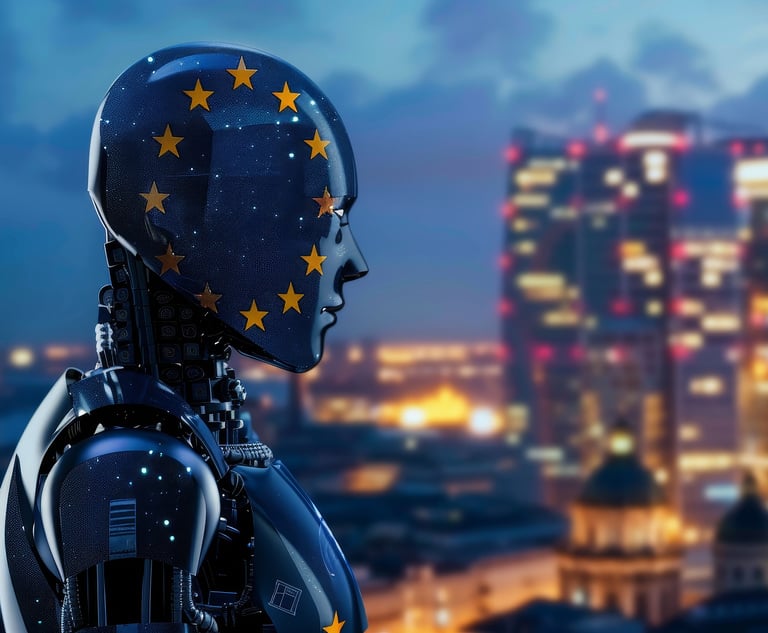Features

When Patent Prosecution Becomes Something More
Most days, preparing and prosecuting patent applications follows a familiar rhythm. Talk with the inventors. Draft the application. Wait for the Patent Office. Argue a few times. Secure the patent. Repeat. But every so often, a case reminds us that our work can mean much more — especially when something has gone wrong, and someone needs an advocate to make it right.

District Judge Has Had Enough of Schedule A Infringement Litigation Tactic
After putting a months-long pause on all of his active Schedule A cases, Judge John Kness in the U.S. District Court for the Northern District of Illinois issued a scathing opinion calling out the practice and urging his fellow jurists to reassess their approach to the litigation strategy.
Features

AI and the Fair Use Defense: Lessons from Two Recent Summary Judgment Rulings
Two judges in the Northern District of California recently issued groundbreaking summary judgment rulings regarding whether an artificial intelligence company’s scraping and ingestion of copyrighted works to train its LLMs qualified as fair use. Both decisions carry potentially seismic importance for AI companies and intellectual property litigators.
Features

OpenAI Gets Summary Judgment In Trademark Battle With Open Artificial Intelligence
A trademark battle that pitted technology giant OpenAI against a company known as Open AI (note the space between the terms) has resulted in a summary judgment that has ordered the smaller enterprise to cease use of the name and its prized internet real estate, open.ai.
Features

Recent Decisions from CA and NY On AI Training and Copyright
In late July, two important decisions came down from courts in the Northern District of California regarding the unauthorized use of copyrighted material for the training of large language models. No real consensus has emerged as to the effect they will have on the broader AI litigation landscape.
Features

Successful and Enforceable Brands Connect with the Consumer: Lessons from a Recent 10th Circuit Decision
Protectable rights are created the same way a successful brand is established — linking your Mark and your company’s offering in the minds of the consumer is a must. The good news? Regardless of your company’s size or marketing budget, this necessary connection can be achieved.
Features

Insights from Acting Director Stewart’s Decisions on Discretionary Denial under the New Interim Processes for PTAB Workload Management
Just three months ago, Acting Director of the U.S. Patent and Trademark Office (USPTO) Coke Morgan Stewart rescinded existing guidelines governing the Patent Trial and Appeal Board’s (PTAB) discretion to deny petitions for inter partes review (IPR) and post-grant review (PGR) when parallel litigation is already pending in federal district court or the U.S. International Trade Commission (ITC). Acting Director Stewart replaced those guidelines with new interim processes that rely on the Director to issue decisions on patent owners’ requests for discretionary denials.
Columns & Departments

IP News
“Not Merely Monkey Business”: The Bored Ape Case and NFT Branding in the Ninth Circuit
Features

“Not Merely Monkey Business”: The Bored Ape Case and NFT Branding in the Ninth Circuit
On July 23, 2025, the Ninth Circuit issued a pivotal decision regarding digital art, blockchain technology, and trademark law. The ruling not only clarifies that non-fungible tokens (NFTs) are protectable “goods” under federal trademark law, but also sets important standards for how courts should analyze consumer confusion, fair use, and First Amendment protections surrounding artistic expression in the rapidly evolving NFT marketplace.
Features

Copyrights Battles and the Downfall of EU AI Act
While the EU AI Act certainly deserves compliments for both its pioneering nature and numerous thoughtful provisions aimed at the efficient and effective regulation of modern AI, it is not without its drawbacks.
Need Help?
- Prefer an IP authenticated environment? Request a transition or call 800-756-8993.
- Need other assistance? email Customer Service or call 1-877-256-2472.
MOST POPULAR STORIES
- Use of Deferred Prosecution Agreements In White Collar InvestigationsThis article discusses the practical and policy reasons for the use of DPAs and NPAs in white-collar criminal investigations, and considers the NDAA's new reporting provision and its relationship with other efforts to enhance transparency in DOJ decision-making.Read More ›
- The DOJ's Corporate Enforcement Policy: One Year LaterThe DOJ's Criminal Division issued three declinations since the issuance of the revised CEP a year ago. Review of these cases gives insight into DOJ's implementation of the new policy in practice.Read More ›
- The DOJ's New Parameters for Evaluating Corporate Compliance ProgramsThe parameters set forth in the DOJ's memorandum have implications not only for the government's evaluation of compliance programs in the context of criminal charging decisions, but also for how defense counsel structure their conference-room advocacy seeking declinations or lesser sanctions in both criminal and civil investigations.Read More ›
- A Lawyer's System for Active ReadingActive reading comprises many daily tasks lawyers engage in, including highlighting, annotating, note taking, comparing and searching texts. It demands more than flipping or turning pages.Read More ›
- Practice Tip: The Earning Capacity of Business OwnersThe owner of a business can claim as lost earning capacity in a personal-injury action only the working time lost due to injuries and harm to future earning capacity, not the business' alleged profits in perpetuity.Read More ›
